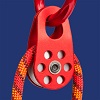IPad Apps

Rocks and Minerals

Structure of earth

Simple Machines

Magnets

Animal Adaptations

Plant Adaptations

Diseases

Solar System
Welcome to FunAppSchool

IPad and IPhone Apps
Educational Games for IPad and IPhone. English Grammar and Science Apps for Elementary and Middle School Kids.
Rockets
As you can imagine, the very first rockets that were invented by the Chinese in about 1232 AD looked nothing like the magnificent beasts that take off to outer space today.
In those days, these “rockets” were actually fire arrows that were used by the Chinese in their many dynastic battles.
However, even before the Chinese invented the fire arrows, Archytas a Greek inventor flew a wooden flying bird in 400 BC, which operated on the same principle that the rocket would, centuries later.
Over the next few centuries, many inventors and scientists experimented with the mechanism of the rocket and its flight.
The change of the size of the rocket came with the change in its purpose. At the beginning, rockets were used as weapons and fireworks. Today it means space travel.
Some of the earliest known rocket experiments were conducted between the 13th and 18th centuries when they were used to power torpedoes to destroy enemy ships.
Many countries during these early years used rockets as weapons during battle like India, France, Poland, England, and America.
An English inventor, Sir William Congreve even invented a rocket that could fire up to about 9,000 feet, and later in 1806, an Italian, Claude Ruggieri was said to have rocketed small animals into outer space.
As unbelievable as this is, as far back as 1821 sailors were believed to have hunted whales by launching rocket harpoons.
Through all these inventions and improvements inventors, sailors, and scientists began to closely study the science and physics behind the rocket.
With more people becoming interested in space travel in the 19th century, the interest in the rocket also grew. Four people in particular played a part in this new revolution.
Robert Goddard from America, Hermann Oberth and Wernher von Braun from Germany, and Konstantin Tsiolkovsky from Russia played important roles in developing these small-scale weapons to the huge space machines.
The earliest rockets were fixed with single engines and were able to climb until their fuel ran out.
Slowly these rockets were designed to have smaller rockets be placed on top of bigger ones.
When they are fired off the ground, every time a bigger rocket burns out it falls away leaving the smaller ones to travel faster up into the air.
The idea was to increase speed by reducing the weight of the rocket; so that the lighter the object, the faster and further it will travel.
The first Earth orbiter was the Russian Sputnik 1, which was the first satellite to be placed in space on the 4th of October 1957.
Later that same year on the 3rd of November, the first animal travelled to space on Sputnik 2. Her name was Laika.
The first American satellite Explorer 1, an American 4 stage rocket was launched into space in 1958. The NASA agency was established this year too.
Three years after Laika went to space; two other dogs, Belka and Strelka travelled to space on Sputnik 5 in 1960, and became the first animals to return to Earth safely.
Over the next few years, still continuing strongly many people have travelled into outer space, even landing on the moon, and coming back safely to earth.
There have also been many accidents when things have not gone right. In this journey of the rocket, many brave soldiers, scientists and inventors have also lost their lives.
In 1987, the first permanent space station was launched by Russia, the Space Station MIR, and in 1988 cosmonauts Titov and Manarov from Russia stayed for 1 year in space.
Many space probes have been put on different planets in the solar system and many exciting voyages and discoveries are set to happen in the future.
The invention of the rocket and all the improvements it has gone through during these decades has given man much knowledge of space and space travel, opening the doors for many new possibilities.







